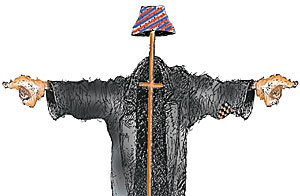 |
Many in the post-1990 generation are hardly aware of his name, but during the long, dark night of Panchayat, Maheshwarbabu shone like a beacon of hope for democracy throughout Madhes. He took part in NC's armed rebellion in the sixties, spent more than seven years in jail and police custody, remained the chairperson of the district unit of Mahottari for 13 long years between 1977 and 1990 and yet took life as it came without making any claims for recognition or reward.
It's difficult to describe the politics of Maheshwarbabu without taking recourse to aims set for all aspiring socialists by Ram Manohar Lohia, an Indian thinker-mentor who inspired an entire generation of politicians in Nepal including BP Koirala. Lohia said that seven revolutions-saptkranti-were necessary to transform a traditional society into a more equitable, just and viable unit of solidarity.
Lohia's call consisted of revolution against economic injustice, caste system, gender inequality, imperialism, colour discrimination, revolution for individual rights against collectivity, and procedural revolution of non-violent civil disobedience. Had NC adopted radical centrism of social democracy, the Maoists would have probably found nothing to revolt against.
The NC fought the first parliamentary elections in 1991 with the promise of ushering in saptakranti of democratic socialism. But as soon as the government was formed, it was business as usual once again in Singha Darbar. Free-market fundamentalism of liberalisation, privatisation and globalisation was embraced as a guiding principle of the government. The decision to appoint a Green Card holder as Nepal's envoy in his country of residence was taken during this period of turbulence in the nineties.
Maheshwarbabu wasn't comfortable with the disease of cronyism, nepotism and favouritism that had begun to eat the vitals of his party. But he had too much faith in the ability of his leaders. He rarely declined to implement instructions of the prime minister or party president even when he knew them to be damaging for democracy or plain wrong. But he refused to ape their working style and tried his best to institutionalise a culture of probity in his ministry. Such a step cost him dear as he ended up alienating the vocal middle class of his own constituency.
Having spurned all requests for out of turn transfers to what his Maoist successor was to later name "attractive ministries", he went back to his constituents almost empty handed for the midterm elections. He lost, but took his defeat with characteristic defiance. "If I have to compromise my principles to win an election," he said, "I would rather lose." There aren't many politicians who can say that with ease. Most tend to manufacture alibis to explain their loss, but his explanation was, "I lost because my constituents didn't vote for me."
In this column in issue #18 of Nepali Times I wrote: 'I am not aware of even one public servant, civil or military, who can hold a lamp to the sincerity of purpose of a Maheshwar Prasad Singh or a Shankar Pandey.' It's a tragedy of public life in Nepal that it's not necessary to correct this statement even after a decade. The death of Singh makes the life and politics of Bhim Bahadur Tamang, Ramhari Joshi, or Shankar Pandey even more precious-they remain yardsticks with which the conduct of future generation of politicos would be measured.
Will student activists going to the polls next week have it in them to follow the footprints of these soldiers of democracy when it's their turn to take the torch?



